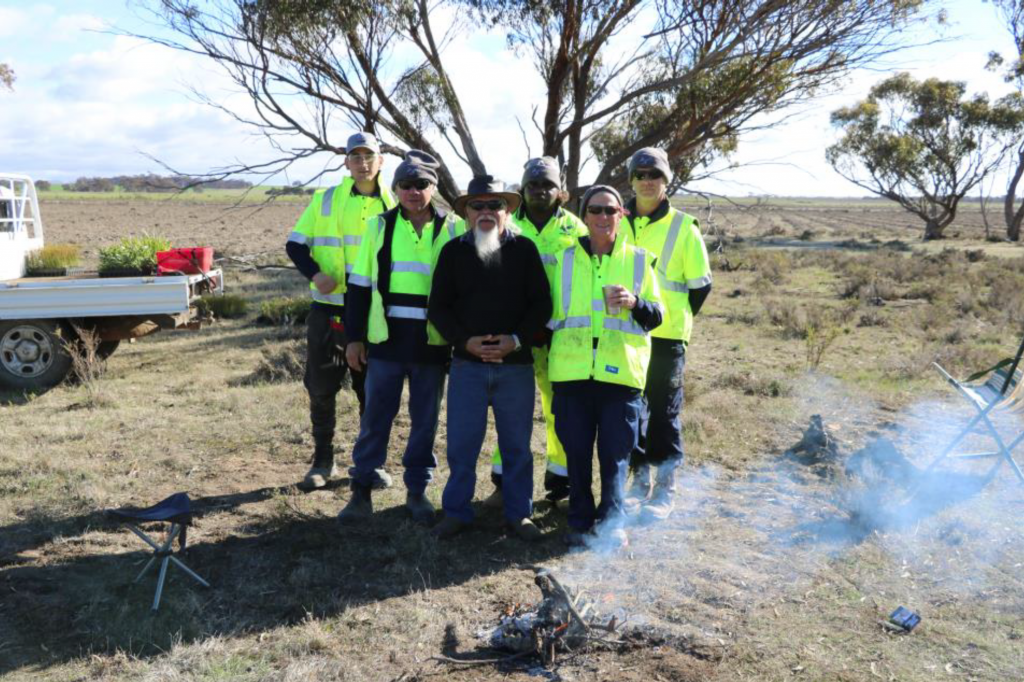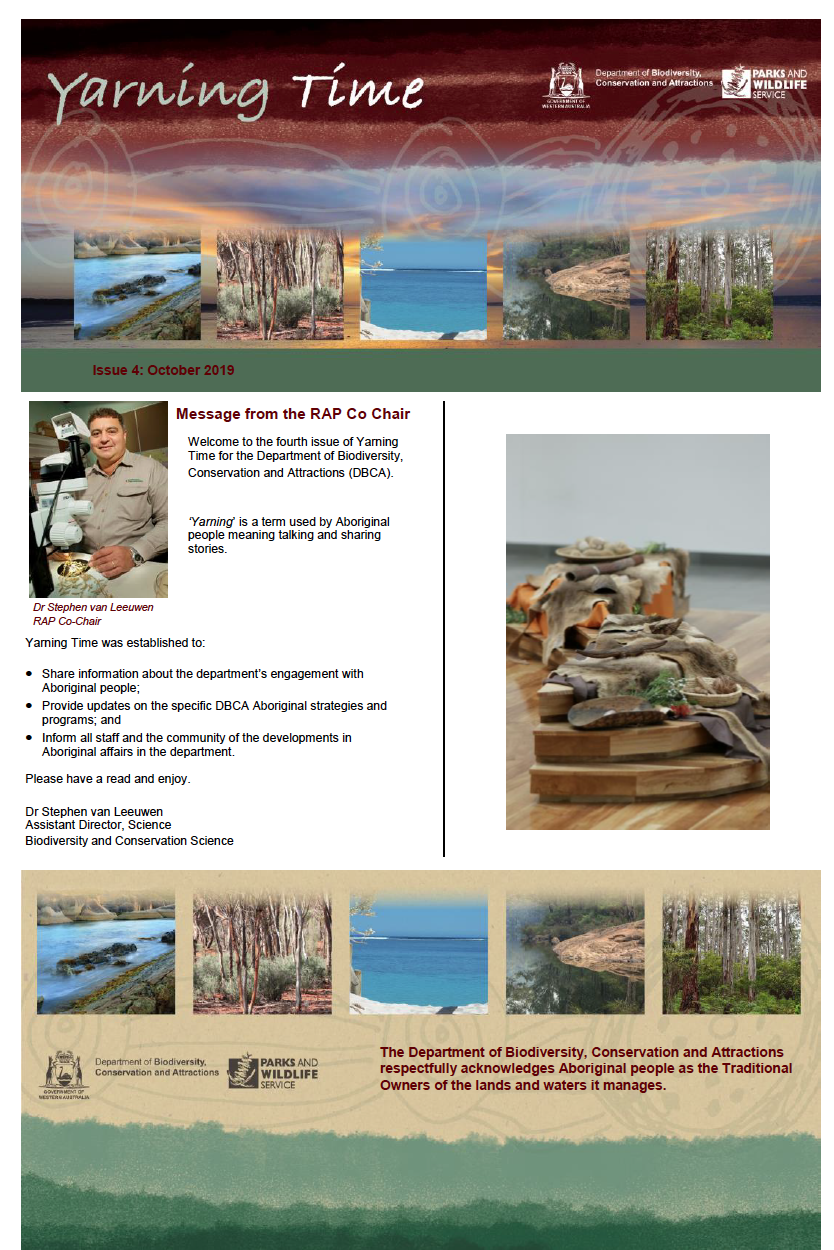Rangers partnership with Parks and Wildlife

Power in partnerships
In early July 2019, Parks and Wildlife Service staff from the Wheatbelt Region partnered with the Badgebup Aboriginal Corporation (BAC) to complete revegetation work on a recently purchased block of former agricultural land adjacent to Toolibin Lake Nature Reserve.
Toolibin Lake is a Ramsar registered wetland within the Toolibin Catchment where over 90 percent of the native vegetation has been cleared. The revegetation project was part funded by South West Catchments Council aims to reduce the affects of al-tered hydrology in the form of rising saline ground water levels and waterlogging, along with increasing the biodiversity of the area.
Johnnie Rodd (Ngoolark Ranger Team Leader) and Kerry Rodd (Ngoolark Ranger) and their team of rangers worked under the direction of Toolibin staff. Rain in the days just prior to planting made perfect conditions for planting new seedlings but made for very muddy and wet conditions to work in. Fortunately, the sun shone for most of the time, keeping the rangers in high spirits.
The BAC rangers approached the work enthusiastically, enjoying their time at Toolibin Lake, undertaking warm up stretches each morning and happily going about their task. In total they managed to plant 20,000 seedlings over an area of about 12 ha, including 17 different species of plants local to the area.
While they were working the rangers were visited by Les Eades, a local Aboriginal Elder to the area who grew up just a short distance from the lake at Toolibin townsite. Les undertook a smoking ceremony with the rangers to welcome them to country and help look after them while they undertook their work. Les shared stories of his time growing up in the area, how the lake and surrounding country had changed, and the importance of the work being undertaken by the rangers and the department. It was also a great opportunity to get Les back out to country which he hadn't had the chance to see for a number of years.
The project provided a great opportunity for Department of Biodiversity Conservation and Agriculture (DBCA) and the BAC to work together to provide employment opportunities and achieve conservation goals, with both groups looking to continue to work together into the future.
You can read the article in the DBCA Newsletter here:

